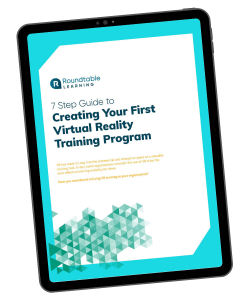5 Benefits to Integrating your LMS with your HRIS
A learning management system (LMS) can make training employees either an educational, trackable, and successful initiative, or a nightmare. Choosing a boxed-LMS product that may not meet your needs is a costly investment that can quickly sour if your learners don’t know where to find it or don’t see the value in it. This is sometimes the case with human resource information system (HRIS) suites or human capital management (HCM) systems with LMS components.
HR platforms and systems are filled with employee data and paper-heavy processes, making them extremely difficult to remove once installed. These suites require months of implementation time, and once in place, companies tend to continue using the system regardless of whether every component works well.
These all-in-one systems can simplify your company’s many HR needs, but choosing an LMS from such a wide enterprise can limit the customization you need from your LMS. Rather than purchasing the LMS add-on that your HRIS offers, you may want to consider integrating a custom LMS to offer you more flexibility and the same all-in-one platform.
Here are five benefits to integrating a custom learning management system with your HRIS.
1. Full customization
The greatest benefit to integration is that you’ll have a solution that actually meets your needs. Rather than using an LMS straight out of the box, you’ll be able to build one that works for your learners. Working with Roundtable to create a custom LMS will save you the cost of implementing a boxed-solution that doesn’t engage your learners or produce results.
2. Cost savings
If you’re thinking about moving to a new HRIS because you don’t like the LMS attached to yours, integrating your own LMS is cheaper than overhauling your entire HR system. Rather than doing the extended research, months of demos and implementation time, and new HRIS training, you can plug in an LMS that you know will work for your learners and save you the headache of moving.
3. Reduced information error
Both your LMS and your HRIS require your learners’ personal information and need to contain information about education and any completed training courses. Rather than duplicating the work of entering and reflecting this information, an integration allows data to be shared between both systems simultaneously. When relaying data from one system to another, any small mistake can reduce the value of your data, which makes reporting less valuable as a result. An LMS integration allows information to automatically flow between the two and removes the potential for errors.
4. Enhanced reporting
By integrating your LMS with your HRIS, you can spot patterns among your training data and human capital. Your company can strategically use data to recognize how training correlates with turnover, promotions, engagement, productivity, and more. Recognizing these patterns allows managers to optimize training to improve the company.
5. Data synching
Consider mandated compliance training. If your learners are required to complete coursework in your LMS for auditing reasons, you’ll want to reflect this data in your HRIS so that HR data is kept up-to-date. An integration between your LMS and your HRIS makes this data exchange immediate and trackable.
Over the past 20 years, we’ve developed a core LMS platform that is built to scale. The core is strong and fully-functional. You can purchase the core and we’ll brand it for you and your learners, then implement it to save you the time and cost of external consultation and implementation fees.
If you’re looking for a fully customized solution, we will consult with you to create it. We’ll build an LMS that looks and does exactly what you want. We can plug in any functionality from our large library (e-commerce, HRIS integrations, single-sign-on, self-registration, multimedia, etc.). Call us, today, to see true LMS customization in action.








